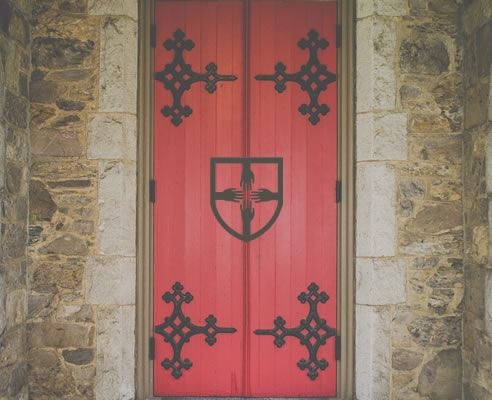Have you not known?
I always knew, but I didn’t want to believe that I deserved God’s love.
I left Salt Lake City in October of 2001 and moved back to a small town in Idaho where I had two sisters. I arrived full of despair, self-loathing and shame. I had lived almost three decades in active addiction. My mother asked one thing of me when I arrived, that was to attend St. Francis of the Tetons Episcopal Church where she had played the piano and lead contemplative prayer prior to moving to Washington state. I went, but every time I walked through the doors my heart would start to hurt, literally, as if someone had a grip on it. I realized later that it was God trying to love me, because I had no idea how to love myself.
On February 11th, 2002, I got into my car, drunk. It wasn't long before my car was flying through the air, upside down. In that moment, I asked God to take me; I saw it as the perfect opportunity for my life to be over. I was a failure at life and relationships. I was a disappointing daughter, sister, friend, and employee, I felt completely worthless. I then heard a voice, he said, “I’m not going to let you do what I did” It was my brother, Clair, who died September 10, 1996, He, too, shared this disease. God had sent me the only person he knew I would hear. The car landed, I was perfectly fine, not a bump, a scratch or bruise, nothing. My call was answered, the woman who wanted to die in that car, perished, I stand before you today a woman reborn, given the gift of life.
Have you not heard?
I heard, but I didn't want to listen, because I refused to believe I deserved God’s grace.
Easter Sunday 2002, St. Francis was full; everyone dressed in their finest, with the view of the Tetons’ crisp and clear through the three narrow windows behind the pulpit. I was sitting and singing with the choir, when after the sermon, the presiding priest asked, “Does anyone want to be baptized?” A friend sitting next to me said it was as if I had been pulled up by a string, I stood up and walked to the front and was baptized. There was no plan, the priest told me later she had no idea why she asked that question; it was the second most powerful moment in my life. From that moment my life has been God driven.
In Paul’s first letter to the people of Corinth, he was compelled to spread the Good News without payment, because he believed he had been chosen to do so. In my recovery, I am also compelled to share God’s forgiveness with those who share my disease, to listen with a compassionate heart. We are all connected by our heart strings, said my first sponsor. We share a commonality regardless of race, gender, social standing, or job description; we are all children of God. We share common ground and from that common ground we build a foundation of love and service. I must give away the blessing that I have been given; I will never recover, but will always be in recovery.
Today my life is amazing! I have become a loving daughter, a true friend, a devoted sister and a good employee. To be honest with you, I don’t think I would have written my life plan the way it was, but I also wouldn't change one minute of it, because God’s plan for me has brought me here, today, to tell you, “He gives power to the faint and strengthens the powerless.” I have been empowered with both the love and grace of my God and I choose a better life for me.
My sobriety date is 2-13-02
I am a child of God, and I am loved.
Shu D.
 In the early days of the Church, when the front door of the parish was painted red it was said to signify sanctuary – that the ground beyond these doors was holy, and anyone who entered through them was safe from harm.
In the early days of the Church, when the front door of the parish was painted red it was said to signify sanctuary – that the ground beyond these doors was holy, and anyone who entered through them was safe from harm.